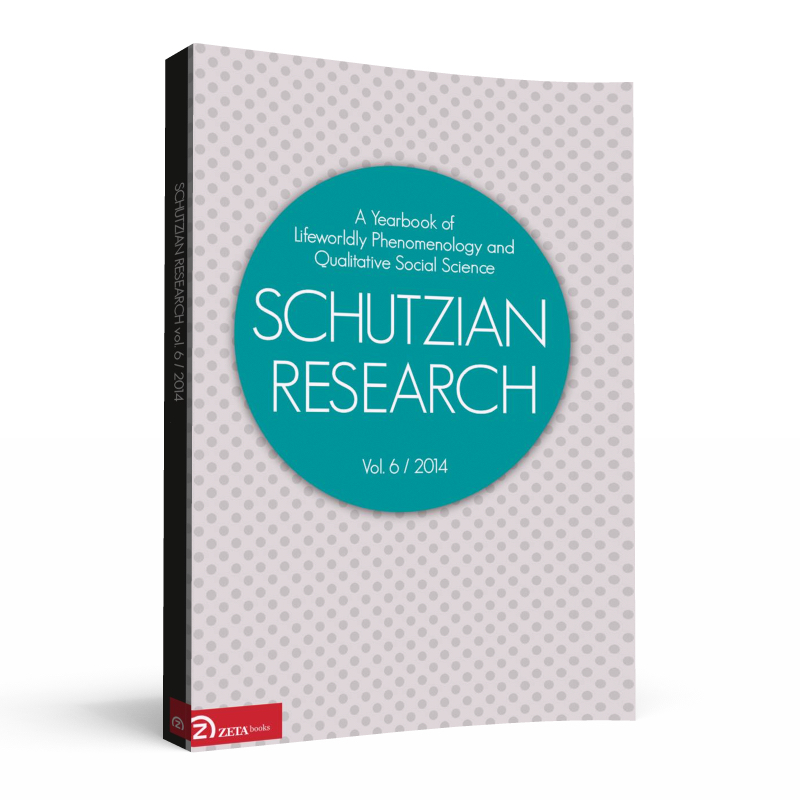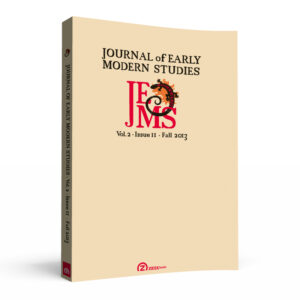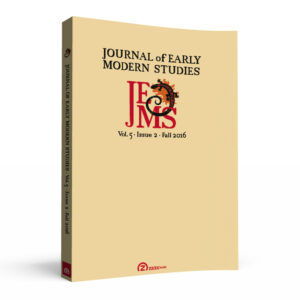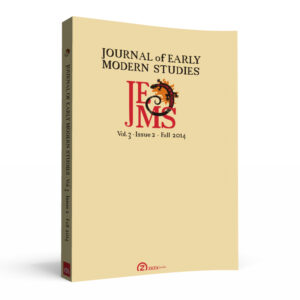Table of Contents
Michael D. BARBER, Editor’s Introduction
Hisashi NASU, Transformation of Knowledge and a University “Crisis” in Japan
- Abstract: This essay aims to interpret Japanese university reform plans in terms of knowledge. For this aim, a history of attempts at university reform after Second World War is described briefl y (sec. 2), and the underlying tone of these reform plans is explored by asking why the university had to start attempts at reforming their education and research system, what these plans signify, and what results from them (sec. 3). Then, it is asked where such reform plans lead the Japanese university, and a conclusion is drawn that as regards to knowledge expected to be produced and transmitted in university, the present Japanese university becomes to be a different kind of institution from the university based on the W. von Humboldt’s ideas (sec. 4). This leads attention to A. Schutz’s theory of knowledge, especially his distinction between knowledge and information, his insight into horizonal structure of knowledge as well as his ideas about higher education founded on his theory of knowledge, and why and in which context Schutz’s theory of knowledge is significant for elucidating a university “crisis” in Japan is explicated (sec. 5).
Daniela Griselda LÓPEZ, Alfred Schutz on Social Order
- Abstract: The paper aims to analyze the potentiality of
Schutzian phenomenology to account for the problem of social order. Firstly, we expose the existence of an interpretive scheme of Parsonian roots in contemporary social theory that introduces the dualistic dilemma subjective action versus social order in the analysis of Schutz’s perspective. According to this interpretive scheme, Schutz fails to master the problem of social order. Secondly, and in clear opposition to those interpretations, we show three main contributions which have put forward the argument that it is possible to find in Schutz’s work a theory of social order: Harold Garfinkel’s early writings, the recent Austrian School of Economics’ reception of Schutz and the present-day interpretation in German sociology. In the context of these discussions, our reflections have explored the pragmatic dimension of the order of the life-world based on a phenomenological constitutive analysis which provides a basis for a comprehensive theory of social order of Schutzian roots.
Horacio M. R. BANEGA, Stock of Knowledge as Determined by Class Position: A Marxist Phenomenology ?
- Abstract: The stock of knowledge at hand is one of the most important concepts of Schutzian social theory. However, it would seem that attempts to consider the structures of the Life-World have not included social stratification in relation to the stock of knowledge at hand. By analyzing certain data from Argentina’s 2001 social crisis, I attempt to show that the concepts of “class position” and “class interest” need to be incorporated so that the descriptive empirical effectiveness of the concept of stock of knowledge can be adapted to contexts of crisis.
Simon V. GLYNN, Alfred Schutz, the Epistemology and Methodology of the Human and Social Sciences, and the Subjective Foundations of Objectivity
- Abstract: Long debated has been whether or not the “objectivistic” epistemologies, quantitative methods and causal explanations, developed by the natural sciences for the study of physical objects, their actions and interactions, might also be applied to the study of human subjects, their experiences, actions and social interactions. Pointing out that such supposedly objective approaches would be singularly inappropriate to the study of the significance or meanings, qualitative values and freedom of choice, widely regarded as essential aspects of human subjects, their experiences, actions, and social interactions, and drawing attention, a la Alfred Schutz, to the two meanings of the term “subjective” (i.e. of the subject, and, unverifiable) it is first argued that many of the claims of the natural sciences themselves are “empirically” unverifiable, in the Positivistic sense (i.e. attested to by the evidence of the five senses) of that term. Moreover, and most crucially, it is further argued that the “objectivity” of an experience cannot be empirically established on the basis of its supposed correspondence to some (quasi Noumenal) “objective” world – for, as precisely appearance or experience transcending, the existence of such a world, much less its nature, is clearly empirically unverifiable – and must therefore rest upon inter-subjective coherence, which in turn must, as Schutz has pointed out, depend precisely upon the very subjective experiences which those who would council such an “objective” approach, had ipso facto, sought to avoid as unverifiable. Thus, paradoxically, the criterion of objective verification cannot itself be objectively verified, but rests upon appeals to “subjective” experiences.
Alexis Emanuel GROS, Towards a Moderate Direct Perception Theory: Alfred Schutz’s Phenomenological Theory of Interpersonal Understanding in the Light of the Contemporary Debate on Social Cognition
- Abstract: Long debated has been whether or not the “objectivistic” epistemologies, quantitative methods and causal explanations, developed by the natural sciences for the study of physical objects, their actions and interactions, might also be applied to the study of human subjects, their experiences, actions and social interactions. Pointing out that such supposedly objective approaches would be singularly inappropriate to the study of the significance or meanings, qualitative values and freedom of choice, widely regarded as essential aspects of human subjects, their experiences, actions, and social interactions, and drawing attention, a la Alfred Schutz, to the two meanings of the term “subjective” (i.e. of the subject, and, unverifiable) it is first argued that many of the claims of the natural sciences themselves are “empirically” unverifiable, in the Positivistic sense (i.e. attested to by the evidence of the five senses) of that term. Moreover, and most crucially, it is further argued that the “objectivity” of an experience cannot be empirically established on the basis of its supposed correspondence to some (quasi Noumenal) “objective” world – for, as precisely appearance or experience transcending, the existence of such a world, much less its nature, is clearly empirically unverifiable – and must therefore rest upon inter-subjective coherence, which in turn must, as Schutz has pointed out, depend precisely upon the very subjective experiences which those who would council such an “objective” approach, had ipso facto, sought to avoid as unverifiable. Thus, paradoxically, the criterion of objective verification cannot itself be objectively verified, but rests upon appeals to “subjective” experiences.
Michael M. HANKE, The “Well-Informed Citizen” as a Theory of Public Space
- Abstract: Alfred Schutz´ article on the well-informed citizen can, among others, also be read as a treatise on the information flow in democratic society. To be “well-informed” is a challenge the citizen has to keep up with in order to play his role in civil society, and being well-informed is also to be seen as a precondition for a fairly functioning political community. For Jürgen Habermas, it is the free press that guarantees public communication of democratic societies and which is threatened by the colonisation of the life-world by system constraints following capitalistic logic. The systems nowadays threatening the life-world have additionally become digital in nature, questioning the traditional division of public and private, whereby the challenge of the well-informed citizen set up by Schütz has not lost any relevance nor contemporary interest. On the basis of Schutz´ framework, these questions are debated in the context of Habermas´ Structural Change of the Public Sphere, Volker Gerhardt´s theory of the Public Sphere, and Vilém Flusser´s analises of the new telematic digitalized society.
Mercedes KRAUSE, Mundo de la vida y tipifi caciones de sentido común en los procesos de reproducción social: un análisis empírico sobre familias de clase media en el Área Metropolitana de Buenos Aires
- Abstract: This paper presents an empirical study that analyzes everyday practices regarding the health care and education of middle class families grounded in a phenomenological perspective. Everyday practices are linked to the system of expectations and goals built around practices, constituting a pattern of meaning that involves both aspects of the Life-World, which is affected by social class and other social determinants that define areas of experiences and opportunities for social interaction. Our aim is to reflect on how the constitution of meanings and everyday practices influences the construction of social relations of inequality, and how common-sense notions have the potential to transform or reproduce social relations of power in the educational and health environments.
Rosana Déborah MOTTA and Lionel LEWKOW, Alfred Schutz y Niklas Luhmann: semánticas, tipos, mundo de la vida e intersubjetividad
- Abstract: Our aim is to put into consideration the topics of “semantics”, “types”, “lifeworld” and “intersubjectivity” following the social theories of Alfred Schutz and Niklas Luhmann. First of all, and inversely to Luhmann’s perspective which receives the schutzian theory comparing equal types and semantics, we will show that types are inherent to subjectivity. Secondly, and consequently, we state that the social systems theory in the analysis of the “lifeworld”, does not pay attention to the past character of its constitution. Last, but not least, we will point out that all these aspects are framed in a critique of the phenomenological notion of intersubjectivity, which from the luhmannian point of view, ignores the autonomy of consciousness, as well as the emergent character of the social.
María Lucrecia ROVALETTI, El otro como extranjero
- Abstract: The individual, as an actor in the social world, relies on “a stock of knowledge at hand” (Schutz). However, he also addresses the cultural and historic forms of validity based on the perspectives of his own interests, reasons and wishes, ambitions, religious and ideological commitments. In this sense, not only does the social world constitute the main scene of our actions but also the locus of resistance. These days of highly social complexity and growing cultural interaction mobilize different identification and differentiation processes. In extraordinary situations of change, such as migration for reasons of work or study, or reasons of political or allegedly religious exile, a reformulation of socio-cultural spaces occurs, which is coupled with a rupture of social connections of support and belonging. This refers to a lifestyle under a “transience” status, which may last, in certain cases, all life long. The “place of roots” fails and the subject ends up feeling a stranger even in its own spaces. In this sense, the foreigner’s right (xenos) to hospitality resides precisely in not being considered the absolute other, the barbarian, the savage who is absolutely excluded and heterogeneous, but in being someone whose identity should be guaranteed. Upon answering this requirement, the foreigner undertakes responsibility before the law and before its hosts: the foreigner becomes “a subject of rights”.
ISSN: 2067-0621 (paperback)
ISSN: 2248-1907 (electronic)
ISBN: 978-606-8266-90-9 (paperback)
ISBN: 978-606-8266-91-6 (electronic)






